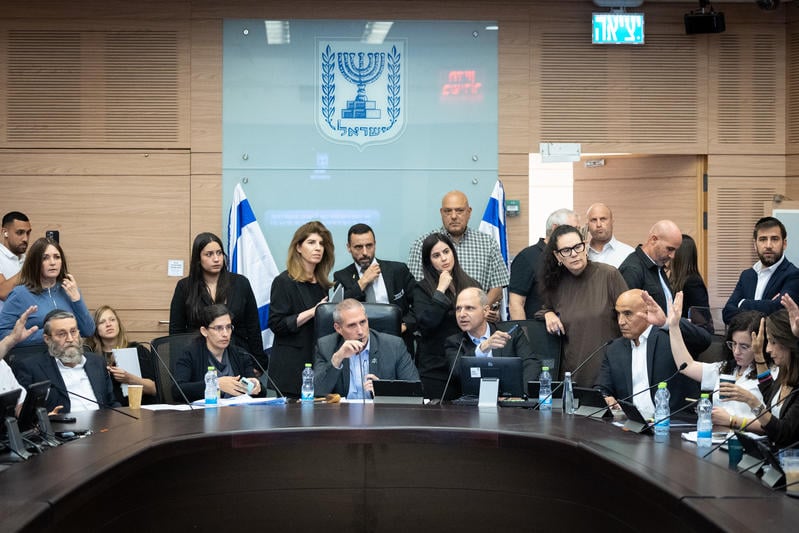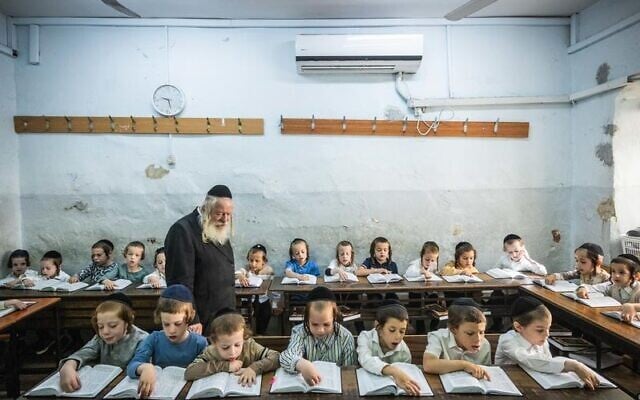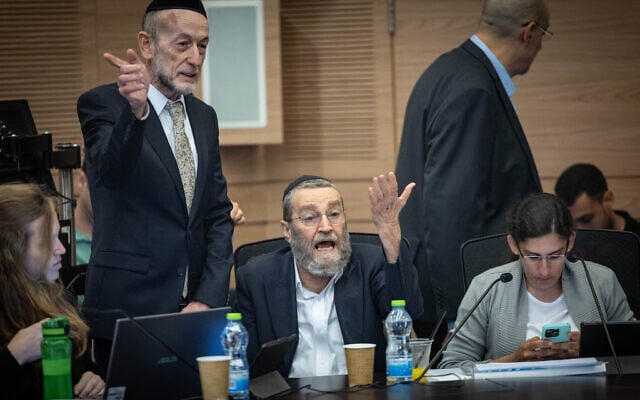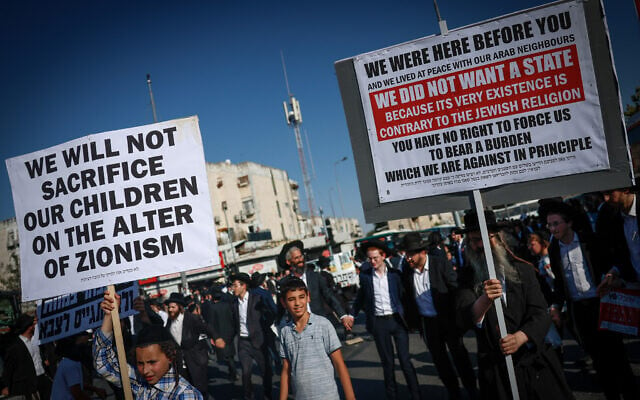



The Knesset Finance Committee approved an additional NIS 177 million ($51.8 million) in direct budget allocations to ultra-Orthodox schools and educational programs on Tuesday in an emergency session, handing the Haredi parties further benefits even though they have left the government.
The allocations included money for “exempt” institutions, recognized but unofficial schools, and religious school systems affiliated with parties like Shas and United Torah Judaism, including funding that was not earmarked in the budget.
Even though the Knesset is in recess until October, and the ultra-Orthodox parties have left the government, an emergency vote was called on Monday to approve, among other things, the transfer of funds totalling NIS 138 million ($40 million) to ultra-Orthodox and National Religious sectors as part of pre-existing coalition agreements.
However, in addition to these funds, the committee also passed a NIS 177 million package including allocations that go beyond what was originally approved in the state budget.
These funds are for salaries for kindergarten teachers in recognized but unofficial Haredi preschools, “summer school” programs in Haredi institutions (even though most of these programs ceased operating in July), and administration and operations of Haredi school systems – even though the Education Ministry explicitly forbids using public funds for such non-public school systems.
“Even in difficult times, with God’s help we have now approved the essential budgets to ensure the continued operation of the educational institutions, for the benefit of the kindergarten teachers, the teachers, and the students,” said UTJ MK Moshe Gafni, a former chair of the Finance Committee who stepped down in July when his party left the coalition.

So-called exempt institutions, or private schools in Hebrew, are called so because they are exempt from teaching the core curriculum, and are subjected to little oversight or sanctions from the Education Ministry.
Exempt schools are supposed to receive about 55% of the amount of funding allocated to state schools, provided they teach 55% of the core curriculum that public schools are required to teach. Recognized but unofficial schools are supposed to teach 75% of the core curriculum and receive a proportionate amount of funding, but many teach far below that.
Opposition lawmakers argued that these transfers bypass proper approval channels and may violate guidelines meant to ensure budgetary fairness and accountability.
During the committee meeting, they pressed for justification of the proposed budget allocations amid ongoing military conflict and deepening economic strain.
National Unity MK Orit Farkash-Hacohen, who voted against the measures, sharply criticized the committee for approving such transfers “in the middle of [the Knesset] recess, on the eve of the occupation of Gaza.”
“The transfer of tens of millions of shekels in political funds to private Haredi education, which promotes ignorance and draft evasion, is further proof of the failed minority government’s unfathomable disconnect from the fundamental problems of Israeli society,” Yesh Atid MK Vladimir Beliak told The Times of Israel.
During the meeting, Gafni expressed frustration with what he viewed as selective outrage from the opposition when the conversation turned toward budget allocations for the Arab community.
“I am very much in favor of [transferring funds] to the Arab community, especially the Bedouins. I believe the budget should be equitable,” he said. “But I can’t stand this behavior; people sat here for two hours talking about Haredi kindergarten teachers who are going hungry, bombarding us with questions. Yet, when transferring funds to the Bedouin community is discussed, suddenly no one asks questions.”

“If Haredi kindergarten teachers are going hungry, then it seems that Gafni did a very poor job during his [years] as head of the Finance Committee,” Beliak responded.
The vote came as the government announced plans to call up more reservists following Prime Minister Benjamin Netanyahu’s declaration of an impending takeover of Gaza City, as well as widespread outrage over the ousting of MK Yuli Edelstein from the Foreign Affairs and Defense Committee — a move tied directly to his refusal to advance legislation exempting ultra-Orthodox yeshiva students from the military draft.
“The Likud-led coalition decided to convene two ’emergency hearings’ today during the Knesset recess,” Yesh Atid said in a statement. “One to push forward their mass ultra-Orthodox draft evasion bill, and another to transfer 177 million NIS ($51 million) to ultra-Orthodox education systems.”
As the Knesset Finance Committee voted to allocate funding mainly to the ultra-Orthodox community, the Foreign Affairs and Defense Committee convened to advance a draft exemption law for ultra-Orthodox Yeshiva students, led by the newly appointed chair, MK Boaz Bismuth, who replaced MK Yuli Edelstein, who was ousted due to his failure to advance the law.
“Likud works for draft dodgers,” the statement continued.

Linking the two issues, Yesh Atid leader Yair Lapid said: “The Finance Committee just transferred NIS 177 million ($51 million) of our money to ultra-Orthodox summer camps, where they [teach] children that they are under no circumstances to serve in the army.”
